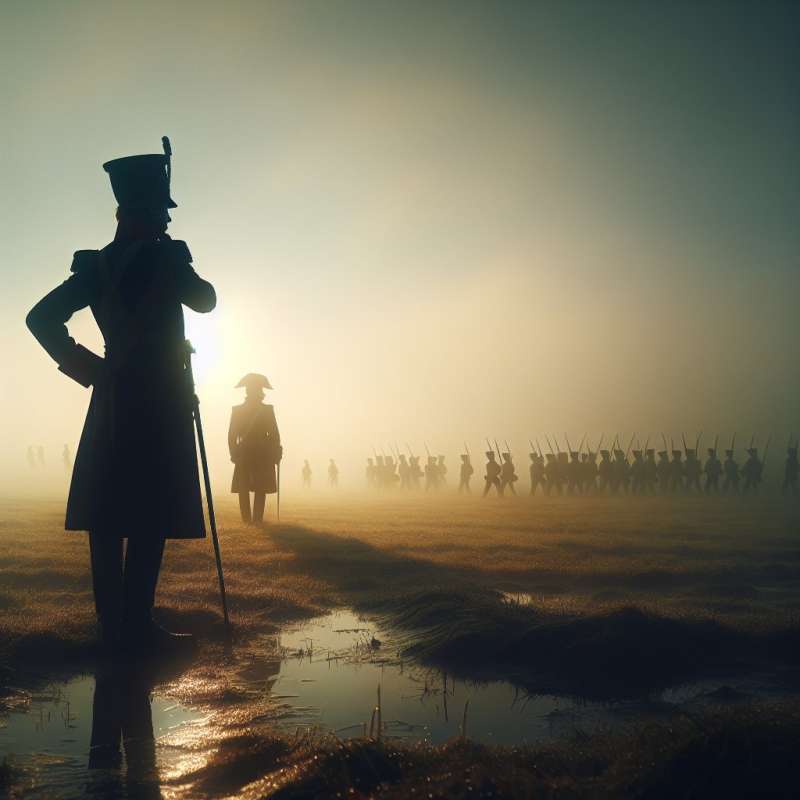
Napoleon's Return
Napoleon's comeback after exile on Elba Island led to the Hundred Days. European allies quickly mobilized against him, fearing a restoration of French hegemony.
Battlefield Misjudgments
On June 18, 1815, Napoleon underestimated the Anglo-Allied forces under Wellington and the Prussian army's resilience, leading to tactical errors.
Delayed Attack
Napoleon delayed the attack, waiting for the soggy ground to dry. This gave the Prussian army time to join the battle, tipping the scales against the French.
Imperial Guard's Defeat
The elite Imperial Guard's assault was repulsed, a rare occurrence that devastated French morale and signaled inevitable defeat.
Grouchy's Late Arrival
Marshal Grouchy's detachment, instructed to pursue the Prussians, arrived too late to support Napoleon's main force, a strategic blunder.
Allied Coalition's Triumph
Wellington's defensive tactics and Blücher's timely support exemplified the superior coordination and resilience of the multi-national coalition against Napoleon's army.
Napoleon's Abdication
Following Waterloo, Napoleon abdicated for the second time, ending his rule. The defeat marked the conclusion of the Napoleonic Wars, reshaping Europe's political landscape.
What triggered Napoleon's Hundred Days?
Escape from Elba Island
Victory at Waterloo
Grouchy's strategic success
Company